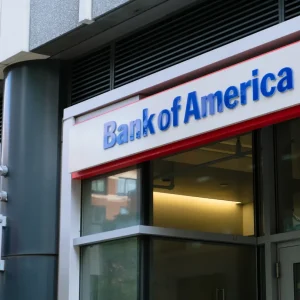In a rule change required by the Competition and Markets Authority (CMA) as part of its Retail Banking Investigation, banks must now set up an alert system which will help their customers avoid unnecessary charges.
During its investigation, the CMA found that banks receive around £1.2bn a year from unarranged overdraft charges. This new overdraft measure, combined with the CMA’s recent order to require banks to publicly announce their maximum monthly charges, could create significant savings for many bank customers.
A number of banks already have alert systems in place, but the new rules require all banks to send these alerts – through texts or a mobile banking app – and to implement other measures, such as a grace period in which people can transfer money into their account to avoid being charged.
The system will apply to new customers from today and will roll out to all existing bank customers over the coming month.
the CMA senior director Adam Land said: "People will now be told when they are about to slip into overdraft, which could help them avoid potentially costly charges. And the changes we are requiring from today make it easier for small firms to switch to another bank for their current account or to obtain a loan.
"These new rules, which are a result of our recent retail banking investigation, are part of a wider package that will help people to get the most out of their banks and force them to work harder for their customers’ money. The overdraft alert system is one of 4 new measures that are being implemented today to improve the service people receive and make it easier to switch between different banks."
At the moment, only 3% of personal and 4% of business customers switch to a different bank in any year, even though personal customers in Great Britain could typically save £92 per year by switching. Small firms, which benefit from 3 of the new measures being introduced, could realise savings of around £80 a year on average.
Opening Business Current Accounts
In its investigation, the CMA found each bank is asking for different information from businesses applying to open current accounts. This has encouraged many small businesses to use their existing Personal Current Account (PCA) provider for their business account and has discouraged them from switching between banks. The CMA is therefore insisting that Business Current Account (BCA) opening procedures are standardised, so all banks will now ask for the same information from applicants.
Loan price and eligibility tool
Small and medium sized businesses will also now find it easier to take out a business loan thanks to a new loan price and eligibility tool to be launched by four banks: RBS Group, Lloyds Banking Group, HSBC Group and Barclays. This tool will help SMEs to understand the costs of taking out a loan and find the best deal for them.
Transaction history
Banks will now also have to provide personal and business customers who are closing their account with five years of transaction history, free of charge, unless they choose to opt out. This move aims to encourage switching, as the CMA has found that the fear of losing your transaction history can be a reason people don’t switch. It also means people will have easy access to their financial records for things like mortgage applications.






